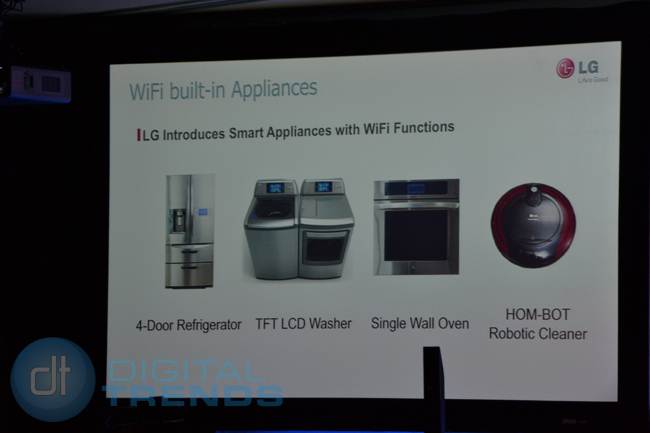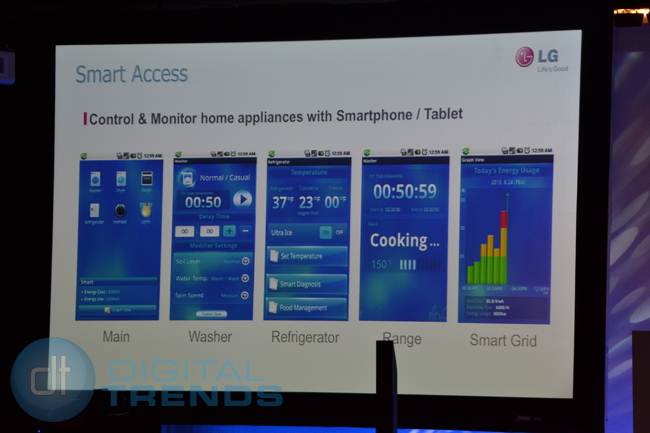Remember the promise of “smart” refrigerators that would keep inventory of your food, make shopping lists automatically, and warn you when you were about to run out of something? So does LG, and despite years of unfulfilled promise, the company will take another swing at the Jetson-esque concept in 2011.
Continuing the company’s promise of “smart” across every product category, LG used CES 2011 to introduce a new line of smart washers, refrigerators, ranges, and even a Roomba-style vacuum robot.

The pitch: Every one of the new appliances uses Wi-Fi to pull both content from the Web, and push data back to facilitate monitoring. For instance, the Hombot vacuum has built-in cameras that will feed a live view of your house – as it vacuums – to the Web, serving as much as a roaming surveillance cam as a mobile maid.
LG’s other smart appliances will follow the same formula; the oven will pull recipes to a LCD screen off the Web, and then automatically plug in the settings; the washers tap into Smart Grid info to run at off-peak times for cheaper rates; the refrigerator will – maybe for real this time – keep track of what’s in it and text message you a shopping list so you know what to restock.

If 3D was last year’s tough premium sell, skeptics will certainly have a field day with the second coming of smart appliances at CES 2011. When you can already got all the recipes you want on your smartphone, would you really want to read them from a tiny screen located over a bunch of burners? Would you ever want to turn up the temperature on your fridge from the car to accommodate for a quart of ice cream you’re bring home (no joke: this is one of exciting scenarios LG used to pitch it)? Do you really want to delay washing your clothes for 16 hours to save 22 cents?
Though LG claims the infrastructure is finally here to support the smart appliances we’ve been expecting for nearly a decade, we suspect the enthusiasm for a computer shoehorned into a stove will still be a while in the making.


